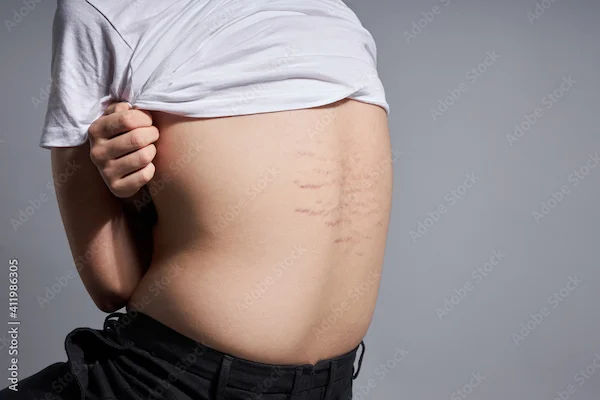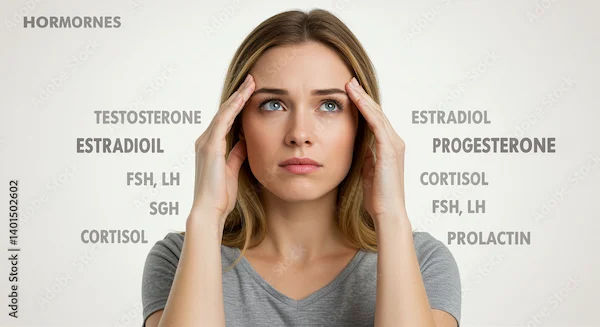How To Reduce Androgens In Females?
Learn how to reduce high androgen levels in females naturally and medically. Discover causes, symptoms, lifestyle changes, and treatment options for hormonal balance.

Written by
Last updated on 13th Jan, 2026
Introduction
Androgens are often called "male hormones," but they are also present in females in smaller amounts. When androgen levels become too high in women, it can lead to various health concerns, including acne, excessive hair growth (hirsutism), irregular periods, and even fertility issues. If you're struggling with high androgen levels, don’t worry- there are ways to manage and reduce them effectively.
What Are Androgens?
Androgens, such as testosterone, are hormones that play a role in reproductive health, muscle growth, and energy levels. In women, the ovaries and adrenal glands produce small amounts of androgens. However, when these levels rise too much, they can cause unwanted symptoms.
Symptoms of High Androgens in Females
If you have high androgen levels, you may experience:
Excessive facial or body hair (hirsutism)
Acne or oily skin
Thinning hair or male-pattern baldness
Irregular or missed periods
Weight gain, especially around the abdomen
Mood swings or fatigue
Difficulty getting pregnant (due to conditions like PCOS)
Common Causes of High Androgens
Several factors can contribute to increased androgen levels in women:
1. Polycystic Ovary Syndrome (PCOS): A hormonal disorder where the ovaries produce excess androgens.
2. Adrenal Gland Disorders: Conditions like congenital adrenal hyperplasia can lead to high androgen production.
3. Insulin Resistance: High insulin levels can trigger the ovaries to produce more androgens.
4. Obesity: Excess fat increases insulin resistance, further raising androgen levels.
5. Certain Medications: Some steroids or hormone therapies may affect androgen production.
How to Reduce Androgens Naturally?
Lowering androgen levels naturally involves adopting healthy lifestyle habits, dietary changes, and using specific natural remedies that help balance hormone production and support overall well-being.
1. Dietary Changes
What you eat plays a big role in hormone balance. Here’s what can help:
Low-Glycemic Foods: Avoid sugary and processed foods that spike insulin. Opt for whole grains, vegetables, and lean proteins.
Healthy Fats: Omega-3s (found in fish, flaxseeds, and walnuts) help reduce inflammation and balance hormones.
Spearmint Tea: Studies suggest it may lower testosterone levels in women with PCOS.
Fiber-Rich Foods: Beans, lentils, and leafy greens help regulate blood sugar and insulin.
To Reduce Androgens Consult Top Sexologists
2. Regular Exercise
Physical activity helps lower insulin resistance and reduce fat, which can decrease androgen production. Try:
Strength Training: Builds muscle and improves insulin sensitivity.
Cardio Workouts: Walking, cycling, or swimming for at least 30 minutes daily.
Yoga & Stress Management: High stress increases cortisol, which can worsen androgen levels.
3. Weight Management
Losing even 5-10% of body weight (if overweight) can significantly lower androgen levels and improve symptoms like acne and irregular periods.
4. Herbal Supplements
Some natural remedies may help, but always consult a doctor first:
Saw Palmetto: May block excess testosterone.
Licorice Root: Helps regulate hormone levels.
Inositol: Improves insulin sensitivity, especially in PCOS.
5. Medications (If Needed)
If lifestyle changes aren’t enough, doctors may prescribe:
Birth Control Pills: Regulate hormones and reduce acne/hair growth.
Anti-Androgen Drugs: Spironolactone blocks androgen effects.
Metformin: Helps with insulin resistance in PCOS.
When to See a Doctor?
If you notice persistent symptoms like excessive hair growth, severe acne, or irregular periods, it’s best to consult a healthcare provider. They may recommend blood tests (like testosterone or DHEA-S levels) and suggest personalized treatment options.
Conclusion
High androgen levels can be frustrating, but with the right diet, exercise, and medical support, they can be managed effectively. If you suspect hormonal imbalances, don’t hesitate to seek help. Book a consultation with an endocrinologist or gynecologist on Apollo 24|7 for personalised care and treatment options.
Consult Top Sexologists
Consult Top Sexologists

Dr. Rohit Bhattar
Uro Oncologist
14 Years • MBBS, MS, MCh (Urology), Fellowship in Uro-oncology and Robotic Urology (United Kingdom)
Ahmedabad
Apollo Hospitals Gandhinagar, Ahmedabad
(100+ Patients)

Dr. Dhruv B. Patel
Urologist
12 Years • MBBS, MS, DrNB (Urology - IKDRC, Ahmedabad)
Ahmedabad
Apollo Hospitals Gandhinagar, Ahmedabad
(25+ Patients)

Dr Rohit Ranjan
Psychiatrist
10 Years • MBBS, MD (Psychiatry)
Bengaluru
Apollo Medical Center, Marathahalli, Bengaluru
(25+ Patients)

Dr. Satyabrata Tripathy
Dermatologist
22 Years • MBBS, MD ( Dermatology Venereology & Leprology), Senior Consultant- Dermatology, Cosmetic Dermatology & Sexually Transmitted Infections.
Bhubaneswar
Apollo Hospitals Old Sainik School Road, Bhubaneswar
(475+ Patients)

Dr Madhu R
Dermatologist
5 Years • MBBS, MD, DNB (Dermatology), STD specialist, Cosmetologist, Dermatosurgeon
Bengaluru
Apollo Medical Center, Marathahalli, Bengaluru
To Reduce Androgens Consult Top Sexologists

Dr. Rohit Bhattar
Uro Oncologist
14 Years • MBBS, MS, MCh (Urology), Fellowship in Uro-oncology and Robotic Urology (United Kingdom)
Ahmedabad
Apollo Hospitals Gandhinagar, Ahmedabad
(100+ Patients)

Dr. Dhruv B. Patel
Urologist
12 Years • MBBS, MS, DrNB (Urology - IKDRC, Ahmedabad)
Ahmedabad
Apollo Hospitals Gandhinagar, Ahmedabad
(25+ Patients)

Dr Rohit Ranjan
Psychiatrist
10 Years • MBBS, MD (Psychiatry)
Bengaluru
Apollo Medical Center, Marathahalli, Bengaluru
(25+ Patients)

Dr. Satyabrata Tripathy
Dermatologist
22 Years • MBBS, MD ( Dermatology Venereology & Leprology), Senior Consultant- Dermatology, Cosmetic Dermatology & Sexually Transmitted Infections.
Bhubaneswar
Apollo Hospitals Old Sainik School Road, Bhubaneswar
(475+ Patients)

Dr Madhu R
Dermatologist
5 Years • MBBS, MD, DNB (Dermatology), STD specialist, Cosmetologist, Dermatosurgeon
Bengaluru
Apollo Medical Center, Marathahalli, Bengaluru


